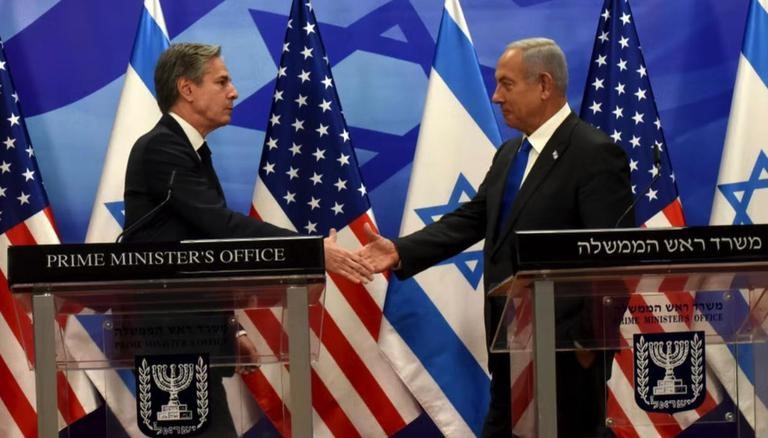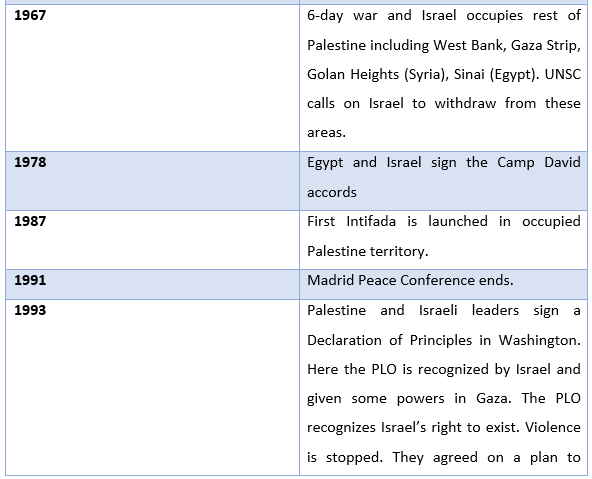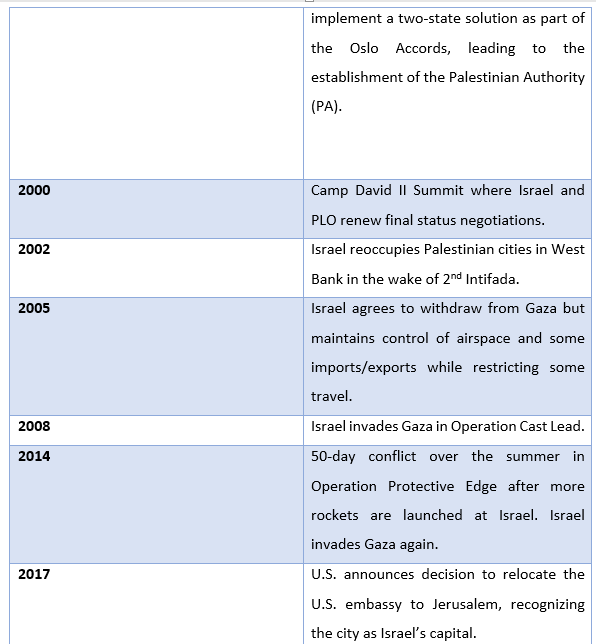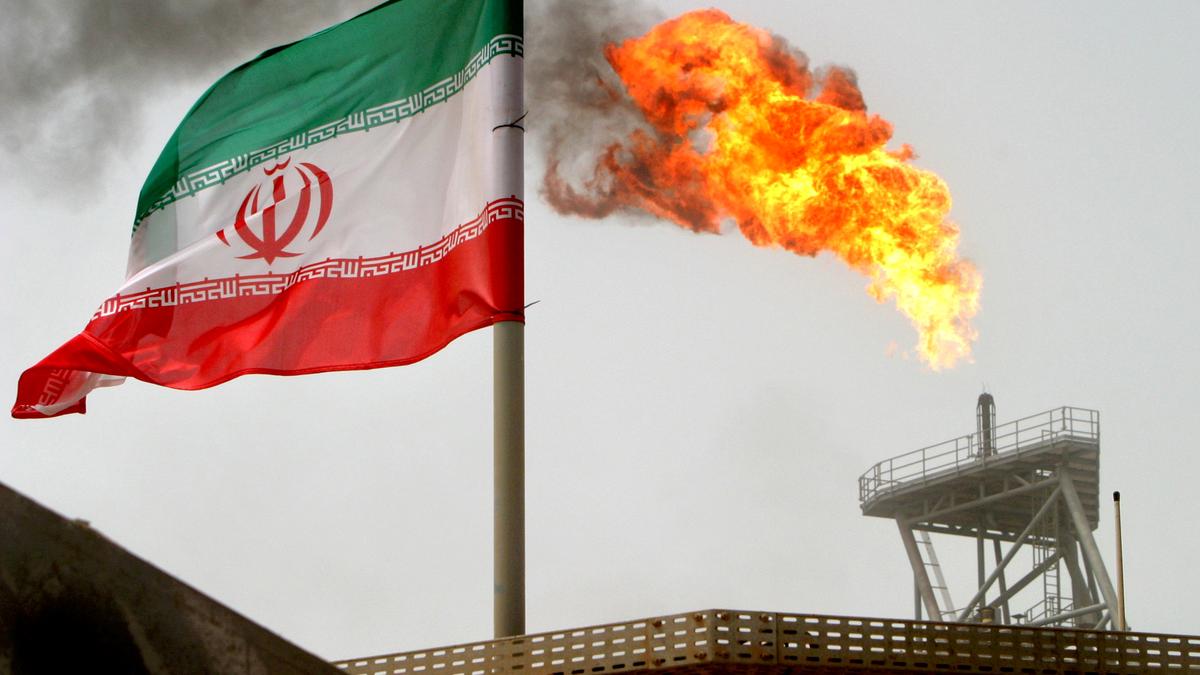Description

Disclaimer: Copyright infringement not intended.
Context: During a visit to Israel, US Secretary of State Antony Blinken communicated that the US sees Israel's democratic essence as crucial to the bilateral relationship and that moving away from the two-state solution for Israelis and Palestinians is harmful to Israel's long-term security and identity as a Jewish and democratic state.
Details:
What it is?
The two-state solution refers to an arrangement where Israeli and Palestinian states co-exist in the region. However, such a solution has not materialised over the decades and the present situation is such that think tank Center for Strategic and International Studies (CSIS) says there are five states in the region instead of envisioned two states.
The Israel-Palestine conflict:
- The land to which Jews and Palestinians lay claim to was under the Ottoman Empire and then the British Empire in early 20th century.
- Palestinian people —the Arab people from the same area— want to have a state by the name of Palestine in that area. The conflict between Israelis and Palestinians is over who gets what land and how it's controlled.
- Jews fleeing the persecution in Europe at the time wanted to establish a Jewish state on the land which they believe to be their ancient homeland. The Arab at the time resisted, saying the land was theirs.
- The land at the time was called Palestine.
- In 1917's Balfour Declaration, the United Kingdom declared its support for the establishment of a "national home for the Jewish people" in Palestine. Arabs resisted it which led to violence.
- Some 75,000 Jews emigrated to Palestine between 1922-26 and some 60,000 Jews emigrated in 1935, according to a history published by the University of Central Arkansas.
- It adds that Palestinian Arabs demanded the UK to halt Jewish emigration, but the UK ignored such calls. There were violent incidents, leading to deaths of some 500 people.
- In 1923, the British Mandate for Palestine came into effect. The document was issued by the League of Nations, the failed predecessor of the United Nations (UN). The Mandate gave the UK the responsibility for creating a Jewish national homeland in the region.
- In 1936, after several rounds of violence between Jews and Arabs, the Peel Commission, set up by the UK government, recommended the partition of Palestine into Jewish and Arab states.
- In 1947, the Britain referred the issue of Palestine to the UN, which came up with a partition plan. It put up two proposals. One, two separate states joined economically —the majority proposal— and, two, a single binational state made up of autonomous Jewish and Palestinian areas — the minority proposal.
- The Jewish community approved of the first of these proposals, while the Arabs opposed them both
- The final proposal was passed in November 1947. It called for the partition of Palestine into Arab and Jewish states, with the city of Jerusalem governed by an international arrangement. This was rejected by the Arabs.
- In May 1948, Israel declared its independence. The Arab countries of Lebanon, Syria, Iraq, and Egypt invaded the newly-declared country immediately.
- When the war ended, Israel gained some territory formerly granted to Palestinian Arabs under the UN resolution in 1947, notes the US Department of State's Office of the Historian, which adds that Egypt and Jordan also retained control over the Gaza Strip and the West Bank respectively. This territorial controlled remained in place till 1967.
.jpeg)
Why it hasn't worked out?
- Borders:
- There is no consensus as to how to draw the lines dividing the two proposed states. Many people say borders should have pre-1967 lines.
- In 1967 Israeli-Arab war, Israel captured Sinai Peninsula, Gaza Strip, West Bank, Old City of Jerusalem, and Golan Heights.
- Israel is not willing to give up these gains. It returned Sinai to Egypt in 1982. Moreover, there is the question of Israeli settlements in West Bank.
- Israel has constructed barriers along and within the West Bank that many analysts worry create a de facto border, and it has built settlements in the West Bank that will make it difficult to establish that land as part of an independent Palestine.
- As time goes on, settlements grow, theoretically making any future Palestinian state smaller and possibly breaking it up into non-contiguous pieces.
- The question of Jerusalem:
- Both Israel and Palestinians claim Jerusalem as their capital and call it central to their religion and culture.
- The two-state solution typically calls for dividing it into an Israeli West and a Palestinian East, but it is not easy to draw the line — Jewish, Muslim and Christian holy sites are on top of one another.
- Israel has declared Jerusalem its 'undivided capital', effectively annexing its eastern half, and has built up construction that entrenches Israeli control of the city.
- Refugees:
- A large number of Palestinians had to flee in the 1948 War.
- They and their descendants —numbering at 5 million— demand a right to return. Israel rejects this. The return of these people would end the demographic majority of Jews, ending the idea of Israel that's both democratic and Jewish.
- Security:
- Security concerns are also central to Israel as it's constantly harassed by terrorist group Hamas that controls Gaza Strip. Hamas and other Islamist groups in Gaza launch rockets into Israel time-to-time.
- Moreover, there are also concerns of Palestinians attack inside Israel.
There is another complication. For any talks, there need to clear representatives. In case of Palestinians, while the West Bank is administered by the Palestinian Authority (PA), Gaza is governed by the terrorist group Hamas. It's understandable that Israel or the United States would not talk to a terrorist organisation.
Why two-state solution is needed?
- Besides fulfilling the basic desire of both Jews and Arabs of their own states, supporters of two-state solutions say it must be backed because its alternatives are simply not workable.
- A single state merging Israel, West Bank, and Gaza would reduce Jews to a minority.
- At the same time, in such a state, Jews would be a significant minority which would mean that the Arab majority would be miffed.
- Since Hamas controls Gaza, some people have said the reality is that it's now a three-state solution with Gaza being a separate state. But again, it's not workable simply because a designated terrorist organisation cannot be legitimised by bringing it to the negotiating table in capacity as a state.
- Besides practical reasons, there is moral reasoning too for a two-state solution. It says that aspirations of one people should not be overridden for others' aspirations.
- It’s a struggle for collective rights between two distinct groups of people. Depriving Israeli Jews of a Jewish state or Palestinians of a Palestinian state would represent a subordination of one group’s aspirations to someone else’s vision





https://www.republicworld.com/world-news/middle-east/blinken-meets-netanyahu-reaffirms-two-state-solution-as-israel-palestine-conflict-soars-articleshow.html
Array
(
[0] => daily-current-affairs/two-state-solution
[1] => daily-current-affairs
[2] => two-state-solution
)













